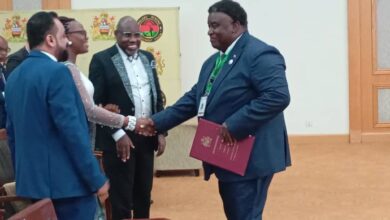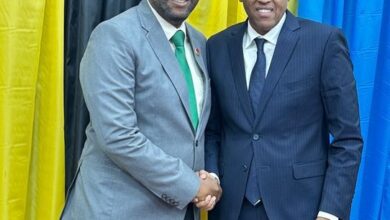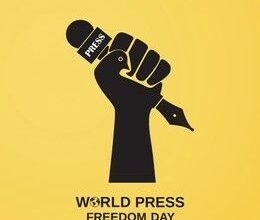Columns
Peter Mutharika’s second coming? Examining the legacy, leadership, and electability of Malawi’s former president
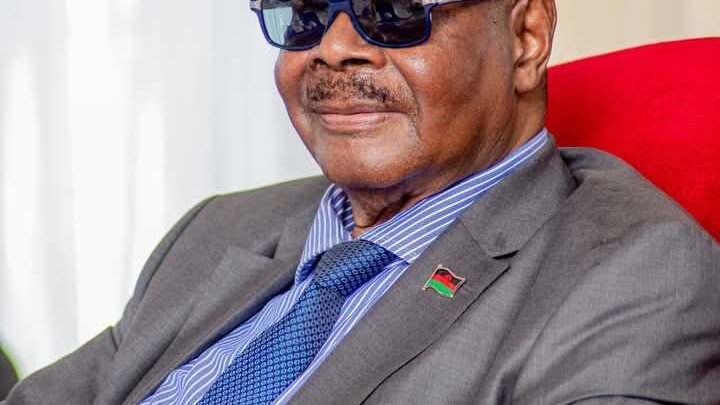
By Burnett Munthali
As Malawi heads toward the pivotal September 16, 2025 presidential elections, the return of former President Arthur Peter Mutharika to the political spotlight has reignited debate about leadership, legacy, and the future of the nation.
Mutharika, who served as Malawi’s Head of State from 2014 to 2020, remains a central figure in the country’s political discourse, admired by some and criticized by others.
To assess his viability in this new chapter, it is essential to revisit his personal and professional background, reflect on his performance in office, and evaluate his current standing among the electorate.
Born on July 18, 1940, in Thyolo district, Arthur Peter Mutharika is the younger brother of Malawi’s former President, Bingu wa Mutharika.
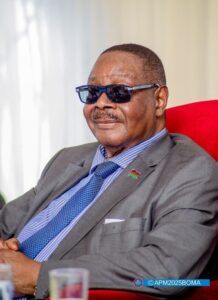
His early life was influenced by the political and academic trajectory of his elder brother, who would later pave the way for Peter’s political entrance.
Peter Mutharika’s academic journey took him beyond Malawi’s borders, earning a law degree from the University of London and later obtaining a doctorate in law from Yale University in the United States.
Before stepping into politics, Mutharika built a reputable academic career, teaching law at several universities in the United States, including Washington University in St. Louis.
His global legal experience positioned him as an expert in international economic law, constitutional law, and comparative legal systems.
Peter Mutharika returned to Malawi in the early 2000s and became a political advisor to his brother, President Bingu wa Mutharika.
Following Bingu’s death in 2012, Peter’s political rise was accelerated as he became the presidential candidate for the Democratic Progressive Party (DPP).
In May 2014, he was elected President of Malawi after defeating Joyce Banda in a tightly contested election.
As President, Peter Mutharika held several important positions, including Commander-in-Chief of the Malawi Defence Force and Chancellor of all public universities.
During his time in office from 2014 to 2020, he presided over a nation grappling with economic stagnation, governance issues, and widespread public demand for reforms.
His leadership style was often described as calm but deeply criticized for being overly cautious and, at times, disconnected from grassroots realities.
Among Mutharika’s notable achievements was infrastructure development, especially in the education and transport sectors.
His administration oversaw the construction of community technical colleges, road projects like the Liwonde–Mangochi road, and expansions in rural electrification.
He also advocated for the independence of the judiciary and implemented reforms in the higher education sector to increase access and improve quality.
However, his tenure was not without controversy and criticism.
The DPP administration was plagued by allegations of corruption, particularly in procurement and public service delivery.
Public confidence dipped further after the infamous “Maizegate” and “Cashgate” scandals, though the latter began under his predecessor’s administration.
Mutharika also faced backlash for his handling of the 2019 presidential elections, which were widely seen as fraudulent, sparking nationwide protests and eventually being nullified by the Constitutional Court.
The court-ordered re-run in 2020 led to Mutharika’s defeat by Lazarus Chakwera, ending his presidency under a cloud of electoral and administrative failure.
In the years since leaving office, Peter Mutharika has maintained a low public profile but has remained active in DPP internal politics, where he continues to wield significant influence.
In 2023 and 2024, calls within the DPP grew louder for Mutharika to contest again in 2025, citing his experience and asserting that the current government has failed to deliver on its promises.
His supporters portray him as a steady hand, someone who understands governance and can rescue Malawi from its current economic malaise.
However, critics argue that a return to Mutharika’s leadership would be a step backward, pointing to his poor communication during crises, failure to address youth unemployment, and perceived tolerance of corruption during his tenure.
As the 2025 elections draw near, the big question remains: how popular is Peter Mutharika among voters today?
Recent political surveys have shown a divided opinion—while his popularity has somewhat resurged among older voters and DPP loyalists, younger and urban voters remain skeptical of his ability to bring new solutions to Malawi’s longstanding problems.
There is also the challenge of age, as Mutharika will be 85 years old during the elections, raising questions about his energy and health to lead an increasingly youthful nation.
Nevertheless, Mutharika’s base in the southern region remains largely intact, and the DPP machinery is gearing up for a strong campaign.
Whether that translates into national support is something only time and campaign strategy will determine.
In a political landscape defined by economic hardships, governance fatigue, and shifting alliances, the 2025 elections could be Mutharika’s shot at redemption—or a final farewell from national politics.
His profile, leadership record, and public perception will all be under the microscope as Malawians decide who should steer the country forward.
For now, Peter Mutharika remains one of the most consequential and polarizing figures in the race.



